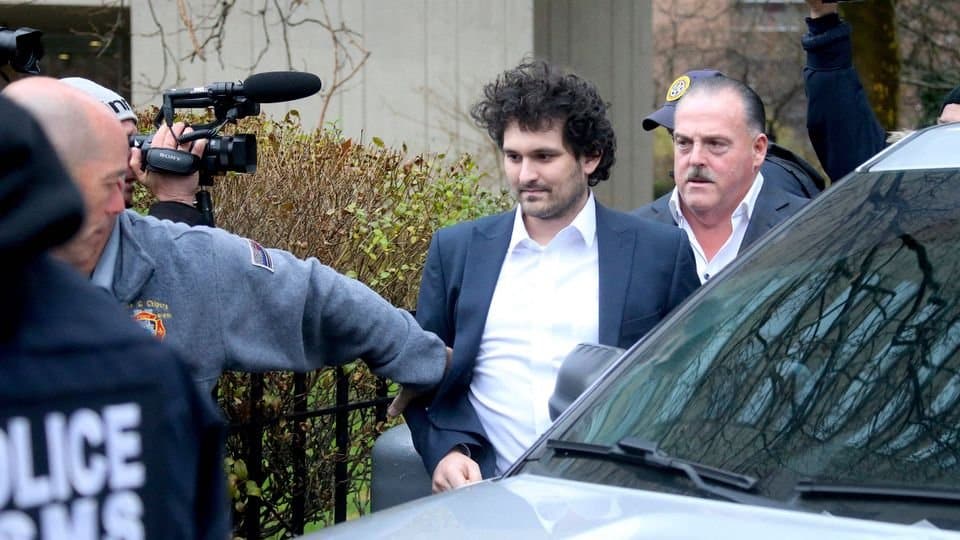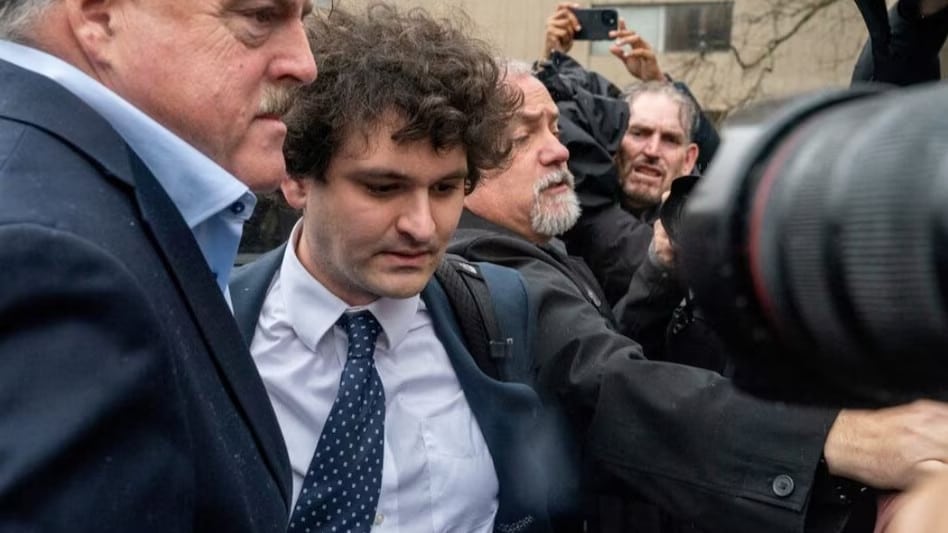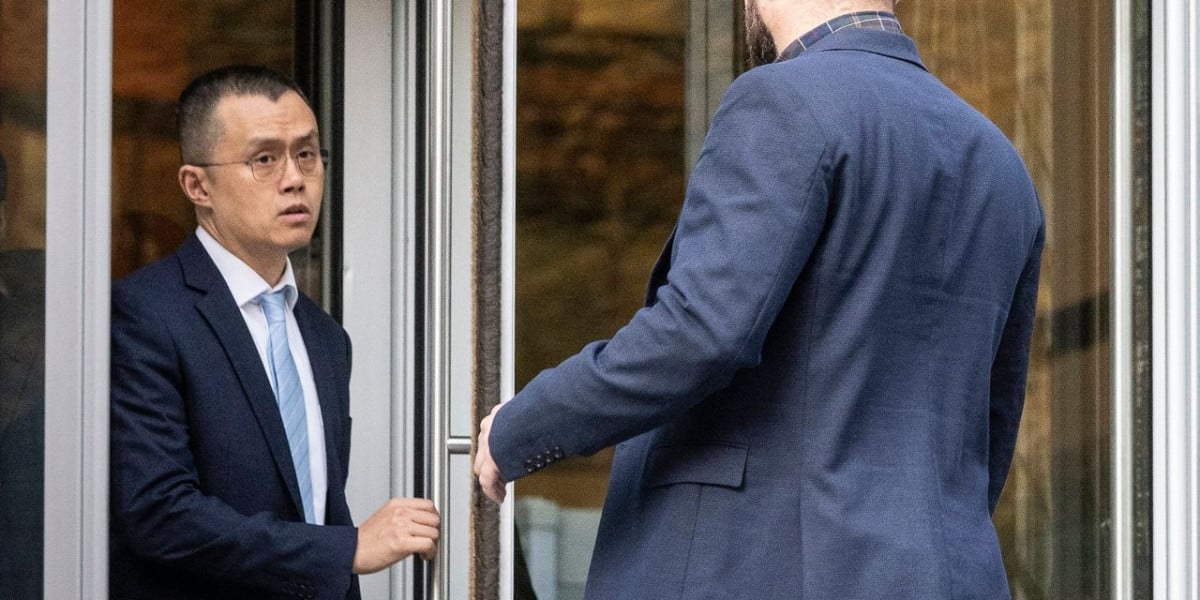The Incredible Journey of FTX: A Closer Look at Sam Bankman-Fried’s Vision
In Brief
On March 24, 2024, following a drawn-out legal saga, Sam Bankman-Fried was sentenced. The judge ruled he would serve 25 years in prison in addition to facing an enormous financial penalty of $11 billion.
A Deep Dive into the FTX Phenomenon: A Bold Initiative
The long-anticipated verdict in the FTX fraud case has finally arrived; its founder, Sam Bankman-Fried, received a 25-year prison sentence instead of the forecasted 110 years along with an order to pay restitution. In this piece, we'll explore the reasons behind such a severe sentence.
The evolving cryptocurrency sector has triggered the emergence of numerous platforms focused on converting digital currency into conventional cash, and FTX was one of them. Launched in 2019 under the guidance of Sam Bankman-Fried, FTX distinguished itself with cutting-edge technology, user-centric design, and bold marketing strategies.
Up until 2022, FTX gained recognition as a trading platform that allowed users to effortlessly exchange cryptocurrencies for cash or fiat currencies. Witnessing a dramatic rise in user accounts for trade and purchase of digital currencies, FTX garnered considerable investment from top-tier venture capital firms. By January 2022, the valuation of the company skyrocketed to $32 billion. From the outset, FTX positioned itself as a game-changer in the market, capitalizing on Bankman-Fried's expertise. Furthermore, the native token, FTT, fueled growth by offering users rewards, discounts, and governance rights.
The Onset of Collapse: The Downfall of FTX
The public disclosure of alarming information regarding the misuse of client assets in November 2022 triggered FTX's demise. When it became clear that billions of dollars meant for customers had been diverted into accounts under Alameda Research's control, investors were filled with anger and dread. The once-glorious reputation of FTX suffered immensely as the news of the scandal spread, leading to a swift loss of trust in the platform.
Standard financial reporting typically requires balance sheets to reflect asset holdings, something FTX and its associated companies failed to do. Without these audits, there was no cash flow or asset tracking to validate the company’s ability to meet its obligations or manage customer assets. The figures on FTX’s balance sheets were far less than what Bankman-Fried had claimed. Displaying $9 billion in liabilities against $900 million in assets revealed a shocking $8 billion shortfall due to inaccurate listings. November 8 was a day of reckoning for FTX's users: the platform suddenly disabled withdrawals, trapping countless individuals without access to their funds. This shocking decision sent shockwaves through the cryptocurrency ecosystem, further heightening concerns about the viability of the exchange. As fears intensified, FTX found itself unable to cover the staggering $8 billion financial gap, forcing the company to seek rescue. .

Binance had expressed its intention to acquire FTX before the full extent of its troubles came to light. Changpeng Zhao, the CEO of Binance and an early supporter of FTX, was involved initially. However, as concerns over mismanagement and U.S. regulatory scrutiny mounted, Binance withdrew from the acquisition the very next day. On November 9, 2022, Binance announced it was pulling out of the deal, citing serious issues regarding FTX's mishandling of client funds. decision to file for bankruptcy .
Legal action intensified on November 16 when a class-action lawsuit was filed in Florida, accusing FTX of operating as a deceptive cryptocurrency enterprise that preyed on inexperienced investors across the nation. High-profile figures, including celebrities and athletes, were named in the suit, as they had actively promoted FTX, raising questions about their role in misleading investors and deepening the legal troubles for the struggling exchange.
Legal Processes on FTX
On December 12, 2022, Bankman-Fried was apprehended by Bahamian authorities at the request of the U.S. government and was extradited to the United States on December 21. Prior to his extradition, the CFTC and SEC initiated enforcement actions to pursue civil claims of commodities and securities fraud. The Department of Justice unsealed an indictment against him, listing eight criminal charges including money laundering, illegal campaign donations, and wire and securities fraud.
Following a courtroom session on December 22, a federal judge made a significant ruling, allowing Bankman-Fried to be released from custody. This decision was reached after negotiations between his legal team and federal prosecutors, resulting in a historic $250 million bond, the highest bail amount ever recorded in U.S. history. With this bond in place, Bankman-Fried could avoid immediate incarceration as further legal proceedings unfolded. He declared his innocence and formally pleaded not guilty to all criminal charges on January 3, 2023.

Released and Charged Again
On February 23, 2023, the DOJ added four more fraud-related charges and accusations of unauthorized money transfers against Bankman-Fried. Furthermore, on March 28, 2023, the DOJ filed a complaint about international bribery. Bankman-Fried pleaded not guilty to these additional allegations on March 30, 2023.
He faced new charges for allegedly attempting to influence Caroline Ellison—a witness in the case—by granting the New York Times access to her journal. Ellison had taken over as CEO of Alameda Research after FTX's establishment. A federal judge imposed a gag order on Bankman-Fried on July 26, preventing him from interacting with the press or others regarding the case.
On August 11, his bail was revoked, leading to his transfer to the Metropolitan Detention Center in Brooklyn shortly after. The trial for seven out of the eight charges stemming from pre-extradition allegations began on October 2, 2023. By November 1, Bankman-Fried faced conviction on all seven counts brought against him.
After an extensive legal process, Bankman-Fried was found guilty on seven federal charges encompassing various fraudulent activities and misconduct:
The Results of the Legal Battle
Two charges of conspiracy to commit wire fraud
- Acts in a conspiracy to execute money laundering
- Dual charges of wire fraud
- Participation in a conspiracy to engage in commodities fraud
- Involvement in conspiratorial activities related to securities fraud
- Sam Bankman-Fried received his sentencing
On March 24, 2024, , culminating in a protracted legal battle. The court sentenced him to serve a lengthy term of 25 years behind bars, coupled with a staggering financial penalty of $11 billion. He was previously estimated to receive 110 years of imprisonment. Should Other Exchange Platforms Be Concerned?
In the wake of FTX's downfall, numerous leaders in the cryptocurrency sector have encountered criminal charges from federal entities. Moreover, the Securities and Exchange Commission (SEC) has initiated legal proceedings against several notable firms in the industry. Coinbase, a publicly-traded American exchange, is among those facing litigation. Similarly, the SEC has taken action against Kraken, another leading crypto exchange, claiming it operated without proper registration and intermixed client deposits with its corporate assets.
Changpeng Zhao, the founder of Binance, the world's largest cryptocurrency exchange, exemplifies the ongoing issues of fraudulent transactions. Zhao pleaded guilty to charges pertaining to money laundering.

He subsequently resigned from his position and accepted a hefty fine of $50 million. Senior officials from the Justice Department have indicated that while federal guidelines suggest a maximum prison term of 18 months for Zhao, there remains the possibility for prosecutors to seek a more severe sentence.
Recognizing its misdeeds, Binance consented to pay an astonishing $4.3 billion in fines and repercussions to federal authorities. This represented a pivotal moment in the company’s history, as Binance reached settlements with various regulatory agencies that had conducted extensive investigations into the company’s operations.
, it’s worth mentioning that the information available on this page is not aimed at providing legal, tax, investment, financial, or any advisory services. It’s crucial to invest only what you can afford to lose and to obtain independent financial counsel if you have any uncertainties. For additional details, we recommend reviewing the terms and conditions and support resources provided by the issuer or advertiser. MetaversePost is committed to delivering accurate, unbiased news, although market dynamics can shift without prior notice.
Disclaimer
In line with the Trust Project guidelines The Rise and Fall of FTX: A Deep Dive into Sam Bankman-Fried's Ambitious Initiative Metaverse Post







